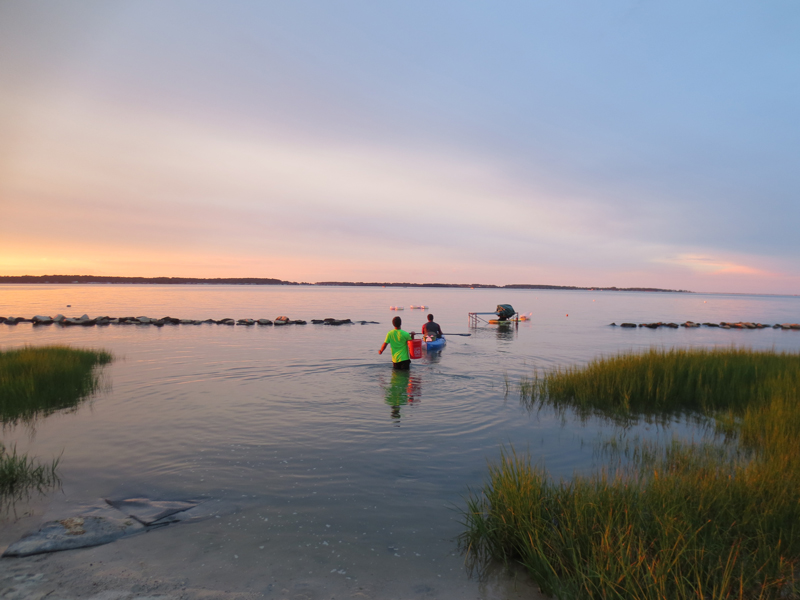


Aug. 24: Ocean Currents lecture
Photo by Joanna York August 09, 2017
Harmful algal blooms topic of lecture in Lewes
Harmful algal blooms (HABs), a scientifically complex and potentially economically damaging coastal issue, is the topic of the final installment of the University of Delaware School of Marine Science and Policy’s 2017 Ocean Currents Lecture series.
The lecture will take place at 7 p.m., Thursday, Aug. 24, in Room 104 of the Cannon Laboratory on UD’s Hugh R. Sharp Campus on Pilottown Road in Lewes.
Free and open to the public, seating for the lecture is available on a first come, first served basis.
Algae are a diverse group of living organisms that play an important role in water ecosystems like rivers, lakes, marshes or the ocean. They form the base of the food chain in these marine and freshwater environments and scientists estimate that algae generate 50 percent of the oxygen in our atmosphere through photosynthesis, according to the National Oceanic and Atmospheric Administration.
When they grow out of control, some species of algae are considered harmful to marine life and to humans. These harmful algal bloom species (HABs) produce toxins that can kill fish and mammals or accumulate in shellfish that are harvested for human consumption. Outbreaks of toxic algal blooms threaten fisheries, public water supplies and tourism in coastal communities throughout the United States.
University of Delaware researchers Kathryn Coyne and Tye Pettay will discuss their work on understanding how HABs interact with the environment, how HABs will be affected by changing climate, and what efforts are currently underway to prevent or manage blooms of harmful algae in our local bays.
Coyne, an associate professor in marine science and policy, is a biochemical ecologist. Most of her research involves understanding how different species of algae interact with each other and with their environment at the cellular level, specifically looking at molecular (RNA and DNA) and biochemical responses to change. In 2015, Coyne and a team of UD researchers were awarded federal funding to investigate a promising algicide that specifically targets dinoflagellate algae, which are among the most toxic harmful algal bloom species.
Pettay is a UD post-doctoral researcher studying the genetic diversity of a species of algae called Heterosigma akashiwo in the mid-Atlantic region, advised by William Ullman, professor of marine and geological sciences.
Visit the College of Earth, Ocean, and Environment’s event page for updates on dates and times. For further information, call 302-645-4234.
Contact Us
Have a UDaily story idea?
Contact us at ocm@udel.edu
Members of the press
Contact us at 302-831-NEWS or visit the Media Relations website

